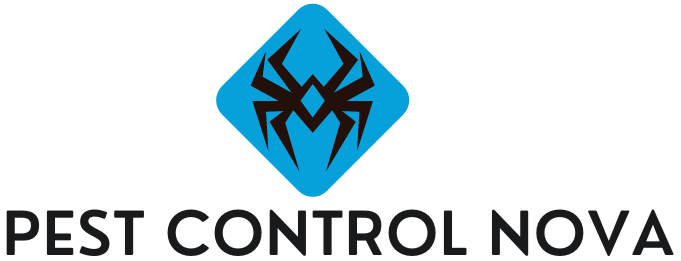As a professional journalist in the agriculture industry, I have encountered many questions about pesticide use in hydroponic systems. Hydroponic strawberries are a popular choice among consumers due to their fresh taste and year-round availability. However, concerns have been raised about the use of pesticides in hydroponics and their potential impact on human health and the environment.
In this article, I will explore the topic of pesticide use in hydroponic strawberries and the different approaches to pesticide management in this cultivation method. We will also discuss the concept of organic hydroponics and the importance of testing and certification programs in ensuring the safety and quality of hydroponic strawberries.
Key Takeaways:
- Hydroponic strawberries are a popular choice due to their fresh taste and year-round availability.
- Pesticide use in hydroponic systems is a concern for human health and the environment.
- Organic hydroponics is a potential solution for pesticide-free strawberry production.
- Testing and certification programs are essential in ensuring the safety and quality of hydroponic strawberries.
Understanding Hydroponics: A Pesticide-Free Solution?
Hydroponics is a sustainable farming method that has gained popularity in recent years. This technique involves growing plants in nutrient-rich water instead of soil. Many farmers have turned to hydroponic farming as a pesticide-free solution to traditional farming methods.
Hydroponics allows farmers to control the growing environment, minimizing the risk of pests and diseases. This not only eliminates the need for chemical pesticides but also reduces the risk of pesticide residue in the produce. In addition, hydroponic farming uses less water and space compared to traditional farming methods, making it more sustainable and eco-friendly.
Hydroponic farms can be established in urban areas, bringing fresh produce closer to consumers and reducing transportation emissions. Furthermore, this method allows farmers to grow crops year-round, regardless of weather conditions, ensuring a consistent supply of fresh produce.
Understanding Hydroponics: A Pesticide-Free Solution?
Hydroponics is a sustainable farming method that has gained popularity in recent years. This technique involves growing plants in nutrient-rich water instead of soil. Many farmers have turned to hydroponic farming as a pesticide-free solution to traditional farming methods.
Hydroponics allows farmers to control the growing environment, minimizing the risk of pests and diseases. This not only eliminates the need for chemical pesticides but also reduces the risk of pesticide residue in the produce. In addition, hydroponic farming uses less water and space compared to traditional farming methods, making it more sustainable and eco-friendly.
Hydroponic farms can be established in urban areas, bringing fresh produce closer to consumers and reducing transportation emissions. Furthermore, this method allows farmers to grow crops year-round, regardless of weather conditions, ensuring a consistent supply of fresh produce.
Pesticide Use in Conventional Strawberry Farming
Conventional farming practices rely heavily on pesticides to control pests and diseases in crops, including strawberries. Chemical pesticides are often used to eliminate insects, weeds, and other pests that can damage crops and reduce yields. While these chemicals can be effective, they pose a potential risk to the environment and human health.
Chemical pesticides may contaminate soil and water sources, impacting local ecosystems and wildlife. They can also pose a health risk to farm workers and consumers who ingest or come into contact with pesticide residues. Long-term exposure to these chemicals has been linked to a variety of health problems, including cancer, reproductive issues, and neurological disorders.
Pesticide Management in Hydroponic Systems
One of the benefits of hydroponic systems is the ability to closely control and monitor the use of pesticides. Integrated pest management (IPM) is a commonly used approach in hydroponics that involves the use of multiple pest control methods to minimize the use of pesticides.
The first step in effective pesticide management is prevention. This involves maintaining a clean and sanitized growing environment to prevent pest infestations from occurring in the first place. Regular monitoring of the plants and growing conditions can also help detect any issues early on.
If pests are detected, the next step is to use non-chemical pest control methods such as physical removal or biological control. For example, introducing natural predators like ladybugs or lacewings can help control aphids or mites without the need for chemical pesticides.
If pesticides are needed, only those that are specifically approved for use in hydroponic systems should be used. These pesticides should be applied according to label instructions and in a way that ensures they do not contaminate the surrounding environment or the plants themselves.
Regular testing for pesticide residues is also important to ensure that the system remains pesticide-free. Certification programs like the Certified Naturally Grown certification for hydroponic produce can provide consumers with assurance that the produce they are buying is free from harmful pesticides.
Organic Hydroponics: A Pesticide-Free Alternative?
When it comes to sustainable farming, organic practices have gained immense popularity over the years. In conventional farming methods, pesticides and other chemicals are used to protect crops from pests and diseases. However, these chemical pesticides may leave harmful residues on the produce, posing a risk to human health and the environment.
Organic farming, on the other hand, relies on natural methods to protect crops and maintain soil health. The use of synthetic fertilizers, pesticides, and genetically modified organisms (GMOs) is strictly prohibited in organic farming. As a result, organic produce is generally considered safer and healthier than conventionally grown produce.
But what about in hydroponics? Can organic practices be applied to hydroponic systems as well?
The answer is yes! Organic hydroponics is an emerging field that combines the sustainable principles of organic farming with the water-saving benefits of hydroponics. By eliminating the use of synthetic fertilizers and pesticides, organic hydroponic systems rely on natural inputs such as compost tea, fish emulsion, and beneficial microbes to promote plant growth and protect against pests and diseases.
One of the key advantages of organic hydroponics is the ability to produce pesticide-free strawberries. By avoiding the use of synthetic pesticides, organic hydroponic strawberries are not only safer for human consumption but also more environmentally friendly.
Moreover, organic hydroponic systems can also improve the nutritional quality of strawberries. Organic farming practices are known to increase the levels of antioxidants and other beneficial compounds in fruits and vegetables, which is why organic produce is often considered more nutritious.
Overall, organic hydroponics is a promising solution for sustainable and pesticide-free strawberry production. As the demand for organic and pesticide-free produce continues to grow, organic hydroponics can play a crucial role in meeting consumer needs while also protecting our health and the environment.
Testing and Certification: Ensuring Pesticide-Free Hydroponic Strawberries
Testing and certification programs are essential in ensuring the safety and quality of hydroponic strawberries. These programs involve rigorous testing for pesticide residues in the final product and certification of farms that follow strict guidelines for pesticide use.
The testing process involves taking samples of the strawberries and analyzing them for the presence of pesticides. If pesticide residues are found, the produce is rejected and cannot be sold. This ensures that consumers are not exposed to harmful chemicals and that the produce meets the highest safety standards.
Certification programs are designed to promote sustainable and responsible farming practices. These programs require hydroponic farms to follow guidelines for pesticide use, including the use of integrated pest management strategies. This approach involves the use of natural predators, such as ladybugs, to control pest populations, reducing the need for chemical pesticides.
Organizations such as the USDA and the Global Food Safety Initiative provide certification programs for hydroponic farms. These programs ensure that the produce is not only pesticide-free but also meets other safety and quality standards, such as proper labeling and packaging.
Overall, testing and certification programs are vital in ensuring that hydroponic strawberries are free of pesticides and safe for consumption. Consumers can feel confident in their choice to purchase hydroponic strawberries knowing that these programs are in place to protect their health and safety.
Consumer Awareness and Choice
As consumers, our choices have the power to influence the food industry. By choosing to buy and support pesticide-free produce, such as hydroponic strawberries, we are sending a message to farmers and businesses that we value sustainable and healthy farming practices.
However, consumer awareness is crucial in making informed choices. Understanding the potential risks associated with pesticide use in conventional farming and the benefits of sustainable farming practices is key in supporting pesticide-free produce.
Fortunately, there are many resources available for consumers to learn more about sustainable farming and pesticide-free produce. Organizations such as the Environmental Working Group provide guides and lists of produce with the highest and lowest pesticide residue levels, while certification programs such as USDA Organic and Non-GMO Project Verified ensure that products meet strict standards for sustainable and healthy farming practices.
Ultimately, it is up to us as consumers to make informed choices and support sustainable and pesticide-free produce. By doing so, we not only prioritize our own health but also contribute to a healthier and more sustainable food system.
Conclusion
In conclusion, the use of pesticides in hydroponic strawberry farming is a topic of concern for many consumers. While traditional strawberry farming often relies heavily on chemical pesticides, hydroponic systems offer a potential solution for pesticide-free strawberry production. However, it is important to note that not all hydroponic systems are pesticide-free.
Integrated pest management strategies can be implemented in hydroponic systems to manage pests without the use of chemical pesticides. Additionally, organic hydroponics provides a pesticide-free alternative for strawberry production. Testing and certification programs are critical in ensuring the safety and quality of hydroponic strawberries for consumers.
Ultimately, it is up to the consumer to make informed choices and support pesticide-free produce, including hydroponic strawberries. As a professional copywriting journalist, I believe that educating consumers on the benefits and potential risks associated with different farming methods is crucial in promoting a sustainable and healthy food system.
FAQ
Q: Do hydroponic strawberries have pesticides?
A: Hydroponic strawberries can be grown without the use of pesticides. However, it depends on the specific practices employed by the grower. Many hydroponic farmers use integrated pest management strategies to minimize the need for chemical pesticides, while others may choose to grow their strawberries using organic hydroponic methods, which prohibit the use of synthetic pesticides.
Q: What is hydroponics?
A: Hydroponics is a method of growing plants without soil. Instead, plants are grown in a nutrient-rich water solution or an inert medium such as perlite or coconut coir. This allows for precise control over the growing conditions and can result in higher yields and faster growth compared to traditional soil-based farming.
Q: Is hydroponics a pesticide-free solution?
A: Hydroponics can be a pesticide-free solution if proper measures are taken. By implementing integrated pest management strategies, such as using beneficial insects, practicing crop rotation, and regularly monitoring for pests, hydroponic farmers can effectively control pests without relying on chemical pesticides. Additionally, organic hydroponics, which follows organic farming practices, provides a pesticide-free alternative for strawberry production.
Q: Are pesticides commonly used in conventional strawberry farming?
A: Yes, pesticides are commonly used in conventional strawberry farming. Due to the susceptibility of strawberries to various pests and diseases, conventional farmers often resort to chemical pesticides to protect their crops. However, the use of chemical pesticides in conventional farming has raised concerns about potential health risks and environmental impacts.
Q: How are pesticides managed in hydroponic systems?
A: Pesticide management in hydroponic systems involves implementing integrated pest management (IPM) strategies. This approach focuses on prevention, monitoring, and control of pests through biological, cultural, and chemical methods. By utilizing IPM, hydroponic farmers can minimize the use of chemical pesticides and reduce their environmental footprint.
Q: Is organic hydroponics a pesticide-free alternative?
A: Yes, organic hydroponics offers a pesticide-free alternative for strawberry production. In organic hydroponics, only approved organic inputs and pest control methods are used, prohibiting the use of synthetic pesticides. This ensures that the strawberries grown through organic hydroponic practices are free from pesticide residues.
Q: How are pesticide residues in hydroponic strawberries tested and certified?
A: Pesticide residues in hydroponic strawberries are tested and certified through rigorous testing programs. These programs ensure that the strawberries meet the established safety standards and contain no harmful pesticide residues. Certifications from reputable organizations provide consumers with confidence in the pesticide-free status of hydroponic strawberries.
Q: What role does consumer awareness and choice play in supporting pesticide-free produce?
A: Consumer awareness and choice play a crucial role in supporting pesticide-free produce, including hydroponic strawberries. By educating themselves about the potential risks associated with pesticide use and actively seeking out produce that is grown without pesticides, consumers can contribute to the demand for pesticide-free options. This, in turn, encourages growers to prioritize sustainable and environmentally friendly farming practices.
- Does Flea Treatment Kill Lice? - September 8, 2023
- Does Flea Treatment Kill Mites? - September 8, 2023
- How to Put Flea Treatment on a Dog? - September 8, 2023






